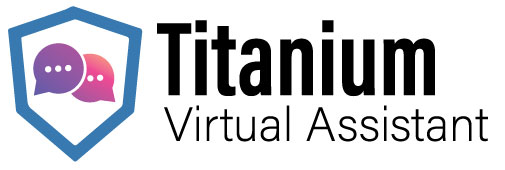Get an Insurance Virtual Assistant to Help Your Business!
The insurance industry presents a promising opportunity for virtual assistants due to various factors that can benefit from automation, efficiency, and improved customer service. By leveraging virtual assistants in the below ways, the insurance industry can achieve increased efficiency, cost savings, and improved customer satisfaction.
It allows human professionals to focus on more complex tasks that require critical thinking, analysis, and a personal touch, while routine and repetitive tasks can be automated for greater productivity. Here are some reasons why the insurance industry is a good fit for virtual assistants:

- Administrative Tasks: Virtual assistants can handle administrative tasks such as email management, appointment scheduling, and document organization, allowing real estate professionals to focus on client interactions and property transactions.
- Data Entry and Management:Virtual assistants can assist with entering and managing property data, updating listings, and ensuring accurate and up-to-date information on various platforms.
- Lead Generation: Virtual assistants can research and identify potential leads, gather contact information, and initiate initial contact, allowing real estate agents to focus on building relationships and closing deals.
- Client Communication: Virtual assistants can manage routine client communications, respond to inquiries, and provide information about properties. This ensures timely responses and keeps clients engaged throughout the buying or selling process.
- Social Media Management: Virtual assistants can handle social media tasks, including posting property updates, responding to comments, and managing social media calendars. This helps real estate professionals maintain a strong online presence.
- Appointment Scheduling: Virtual assistants can schedule property showings, meetings, and other appointments, ensuring that the real estate professional’s calendar is well-organized and optimized.
- Market Research: Virtual assistants can conduct market research, analyzing property trends, pricing, and competitor activities. This information can assist real estate professionals in making informed decisions.
- Document Preparation: Virtual assistants can assist in preparing and organizing documents, such as contracts, agreements, and other paperwork required in real estate transactions.
- Transaction Coordination: Virtual assistants can help coordinate the various stages of a real estate transaction, including liaising with title companies, lenders, and other stakeholders to ensure a smooth process.
- Email Marketing: Virtual assistants can assist in creating and managing email marketing campaigns, keeping clients and prospects informed about new listings, market updates, and relevant real estate information.
- Database Management: Virtual assistants can maintain and update client databases, ensuring accurate and organized records of contacts, leads, and clients.
- Website Maintenance: Virtual assistants can assist in maintaining and updating real estate websites, ensuring that property listings are current and accurate.
- Administrative Tasks: Virtual assistants can handle administrative tasks such as email management, appointment scheduling, and document organization, allowing real estate professionals to focus on client interactions and property transactions.
- Data Entry and Management:Virtual assistants can assist with entering and managing property data, updating listings, and ensuring accurate and up-to-date information on various platforms.
- Lead Generation: Virtual assistants can research and identify potential leads, gather contact information, and initiate initial contact, allowing real estate agents to focus on building relationships and closing deals.
- Client Communication: Virtual assistants can manage routine client communications, respond to inquiries, and provide information about properties. This ensures timely responses and keeps clients engaged throughout the buying or selling process.
- Social Media Management: Virtual assistants can handle social media tasks, including posting property updates, responding to comments, and managing social media calendars. This helps real estate professionals maintain a strong online presence.
- Appointment Scheduling: Virtual assistants can schedule property showings, meetings, and other appointments, ensuring that the real estate professional’s calendar is well-organized and optimized.
- Market Research: Virtual assistants can conduct market research, analyzing property trends, pricing, and competitor activities. This information can assist real estate professionals in making informed decisions.
- Document Preparation: Virtual assistants can assist in preparing and organizing documents, such as contracts, agreements, and other paperwork required in real estate transactions.
- Transaction Coordination: Virtual assistants can help coordinate the various stages of a real estate transaction, including liaising with title companies, lenders, and other stakeholders to ensure a smooth process.
- Email Marketing: Virtual assistants can assist in creating and managing email marketing campaigns, keeping clients and prospects informed about new listings, market updates, and relevant real estate information.
- Database Management: Virtual assistants can maintain and update client databases, ensuring accurate and organized records of contacts, leads, and clients.
- Website Maintenance: Virtual assistants can assist in maintaining and updating real estate websites, ensuring that property listings are current and accurate.

![Titanium-VA-logo-[Recovered]](https://titaniumvirtualassistant.com/wp-content/uploads/2024/01/Titanium-VA-logo-Recovered.png)